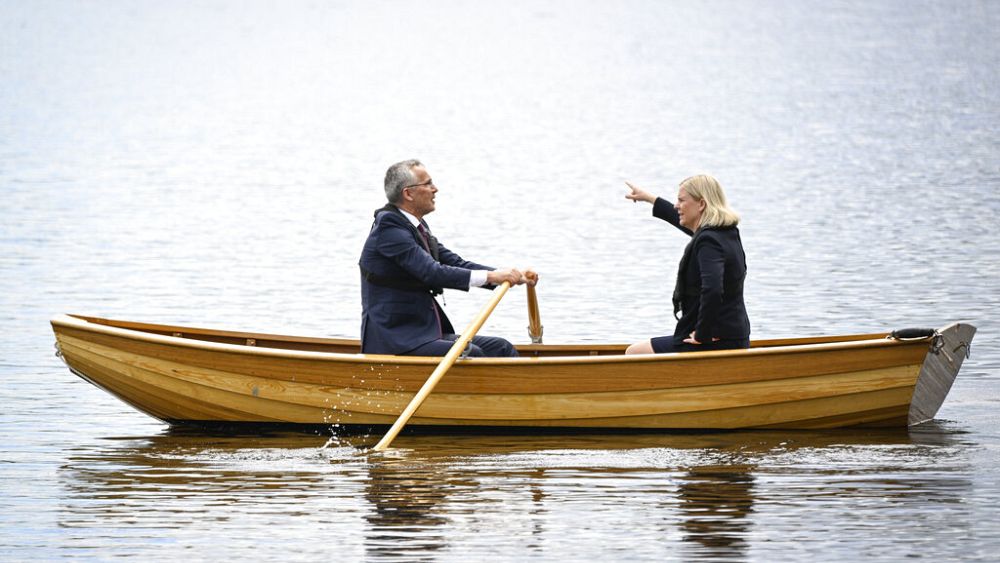Sweden decided to extradite a man to Turkey on Thursday, in the wake of tricky negotiations to join NATO.
The extradition of the man, who is accused of fraud, comes after Ankara demanded that Sweden sends a number of people to Turkey in exchange for allowing it to formally apply for NATO membership.
This is the first time Sweden has decided to extradite someone following tense negotiations with Ankara.
NATO ally Turkey lifted its opposition to Sweden and Finland joining the defensive alliance in June, having previously accused the two Nordic countries of harbouring what Turkey says are militants of the banned Kurdistan Workers Party (PKK).
Turkey gave Sweden a list of people it wants extradited as part of the deal, but has since expressed frustration over the lack of progress.
“This is a normal routine matter,” Swedish Minister of Justice Morgan Johansson told Reuters in a text message. “The person in question is a Turkish citizen and convicted of fraud offences in Turkey in 2013 and 2016.”
“The Supreme Court has examined the issue as usual and concluded that there are no obstacles to extradition,” he added.
A spokesperson for the Ministry of Justice declined to say if the man was on the list of people Turkey has demanded to have extradited or to provide further comment on the matter.
The man denies the crime, saying he has been wrongfully sentenced because he converted from Islam to Christianity, refused to do military service and has Kurdish roots, SVT said.
In a statement, the court says that nothing has emerged to indicate that the man is at risk of being persecuted in Turkey.
Swedish broadcaster SVT, which was the first to report on the extradition, said the man was sentenced in Turkey to 14 years in prison on several accounts of bank card fraud — something the accused denies.
The man, reportedly in his 30s, applied for asylum in Sweden in 2011 and then protection status in 2022, but Sweden’s Migration Agency rejected both applications. He has been detained in Sweden since the end of last year due to the extradition case.
In 2014, the man was granted refugee status in Italy, according to court documents.
However, the Supreme Court announced on July 25 that it sees no obstacles to the extradition.
In an agreement signed by Sweden and Finland at a NATO summit in Madrid in late June, the two countries agreed to examine Turkish extradition requests “expeditiously and thoroughly,” according to Turkey’s Daily Sabah.
Both of the Nordic countries rejected the extradition of 19 individuals and did not respond to Turkey’s request for five others, the Turkish media outlet reports, adding that extradition processes for nine other people, including two in Finland and seven in Sweden, are still ongoing.





















Discussion about this post